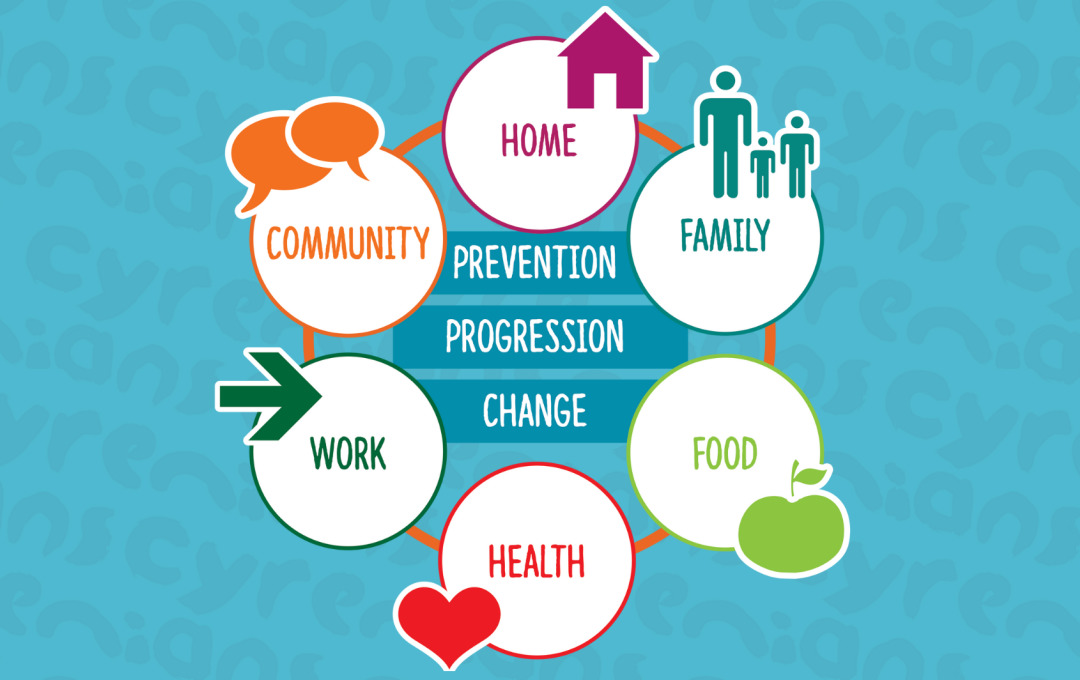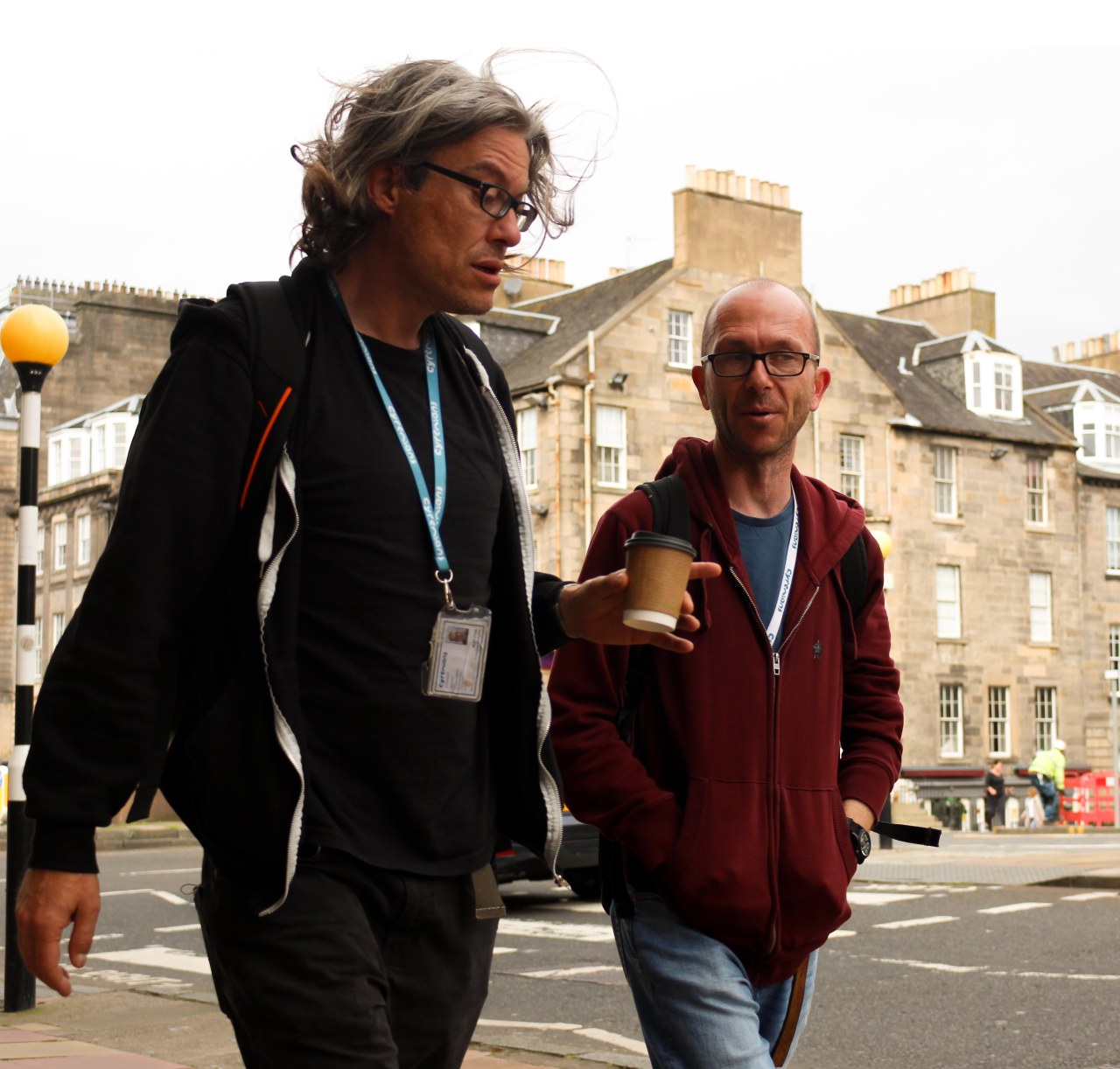How to end homelessness in Scotland by tackling poverty

Poverty and homelessness are tightly tied together. We’ve talked before about the homelessness trap, where poverty brings about homelessness and homelessness worsens poverty. So many of the complex issues that lead to homelessness – addiction, mental health, family conflict and financial crisis - find their roots in the stresses and impacts of poverty.
Poverty is traumatic. Living under the crushing stress of not knowing where your next meal will come from, dealing with the shame and isolation of not having the resources to go out with friends or take part in your community, and most of all knowing that if things go wrong or you get an unexpected bill there’s no safety net – all of it has huge and lasting impacts on people’s lives. That strain can take its toll on your physical and mental resilience, and turn minor disagreements into deep cracks in your relationships.
Some of the biggest contributing factors to homelessness in Scotland, aside from poverty, are family breakdown, intimate partner abuse, mental health crises and addiction. All of these issues are made much harder to bear by the existing weight of poverty. Living in poverty is often isolating, exhausting and overwhelming, and when someone’s already stretched to breaking point trying to manage that pressure, otherwise survivable problems can snowball into something unbearable. When you’re already carrying so much, one more weight to carry can be too much, and everything can start to fall apart.
But the good news is that, just as poverty and homelessness can feed into each other, when we address one we start to address both. This week is Challenge Poverty Week, when organisations and individuals across Scotland come together to declare that poverty is a problem we can all solve together. Poverty isn’t an inevitability, and with a systemic approach we can break the cycle, whether in Holyrood or in our own communities.
Poverty has wide-ranging effects; at Cyrenians we believe that the best response is to offer support that’s just as wide-ranging, so wherever people are feeling the pressure, we’re there to share the load. We work across six different key needs that are often impacted by poverty and homelessness, so people have the support they need to avoid crisis and to build back up if things fall apart.
Home
For many people, before they can have the stability to deal with things like getting back into work, rebuilding relationships or addressing their wellbeing, getting into a stable home is the most pressing concern.
Not having a home address can be a huge barrier to employment and get in the way of accessing vital social and health support, and trauma and ill health are constantly made worse by the stress, instability and poor living conditions of homelessness. Once people are able to build a home and feel confident that they can stay there as long as they want, it provides a stable foundation to tackle other things happening in their lives.
To tackle homelessness, we work to provide the support people need to move into healthier and more stable living situations, whether that looks like support with navigating social housing or getting into private lets, building confidence and skills to live independently, or providing support to help people keep the homes they’re in.
Family
Family conflict is one of the main reasons people experience homelessness, with more than half of young people citing family breakdown as the reason they became homeless. Strong, reliable, supportive relationships can make all the difference to someone’s prospects.
Having a strong support system lets people grow and thrive and when life gets difficult, family can be a safety net to stave off crisis. But stress, poverty, trauma and other issues can make commonplace arguments - exams, work or even just doing the washing up - turn into huge fights. When family becomes a site of stress and trauma, or when family relationships fall apart, young people especially can find it much harder to weather life's storms.
Cycles of trauma and institutional care can resonate throughout people’s lives, negatively affecting their mental health, social connections and wellbeing – by making sure families are supported to manage conflict in healthy ways before things reach a crisis point, by engaging with the underlying stresses and traumas, and by helping people who’ve experienced family breakdown to rebuild and strengthen supportive relationships, we can break the cycle.
Health
The stress and pressures of poverty often have severe impacts on physical and mental health, which in turn often leads to isolation, difficulty engaging with the community, and emotional and physical exhaustion. Without support it can grow into a cycle of worsening health, financial and social instability, and homelessness.
For a lot of people, the route into homelessness is connected closely with poor mental or physical health, trauma and addiction. 45% of people experiencing homelessness report mental health problems (compared to 20% in the general population), and 40% have physical health problems.
Accessing care can be difficult and daunting when you don’t have money or a strong support network, and often short-term care doesn’t address the underlying problems. A lot of people turn to self-medicating with alcohol or street drugs to cope with existing mental or physical health problems, and a lot of the people we work with have struggled with addiction throughout their lives.
By actively reaching out to people to help them access support and take care of their mental and physical health, providing judgement-free spaces for addiction and mental health struggles and room to focus on improving their own wellbeing, we can work to remove barriers to support and make sure that people’s health and wellbeing is taken care of before they reach crisis.
Food
Food is a vital human right, but with food insecurity on the rise, it’s a need that more and more of us can’t easily meet. Thousands of tonnes of food is thrown out every day, but getting enough to eat is a struggle for hundreds of thousands in Scotland, and around a quarter of children nationally don’t have enough to eat.
Good, nutritious food is one of our most basic needs, and people shouldn’t have to choose between paying their bills and eating – but they often do.
We work to give dignified access to good food, and build community, connection and resilience through cooking together and sharing meals.
Work
Stable employment can be a route out of poverty, but it isn’t just about money – work can mean getting the structure, stability and confidence that’s taken away by the chaos and stigma of poverty.
We work with hundreds of people who are intelligent, skilled and brimming with potential, but there are complex barriers to employment. Whether through lack of educational opportunities, life changes, redundancy, disability or lack of confidence, people can find themselves really struggling to get into (or back into) work. We need to be able to meet people where they’re at and give them specific, tailored and lasting support that helps them realise their own potential.
We’ve seen people come alive when they find a skill that not only might help them towards financial independence but is something they’re really passionate about, whether that’s cooking, making art, working on our farm, or going into a new qualification. Training and employment support helps people discover their potential, make the most of their skills, and take control of their life.
Community
Social isolation is a painful, destructive part of many people’s lives, which is worsened by poverty and particularly by homelessness.
Social isolation is inextricably linked with poverty, with all the issues we've already mentioned often pushing people to the margins. Human contact is a basic need, so loneliness is one of the most difficult things to cope with - studies show that loneliness can be as bad for your life expectancy as smoking 15 cigarettes a day.
It's vital to keep people connected. Stronger communities benefit us all, particularly at a time when so many of us have been cut off from our usual support networks. We cannot take the power of community for granted, with many people telling us that just having someone to talk to and a social space to go to has given them the resilience and confidence to get past things that previously felt insurmountable.
Supportive communities have the power to work together, and that means we can create lasting change, whether that’s giving a friend the support they need to get out of crisis and back into the community, or whether that’s all of us across the country working to challenge the causes and consequences of poverty and homelessness.
How we help
Find out more about our services
You've read about why we do what we do - but what does tackling these issues look like? Explore our service pages for more detail on how we approach these complex issues.
